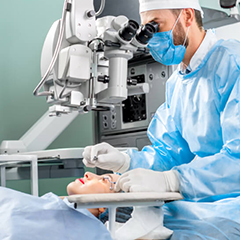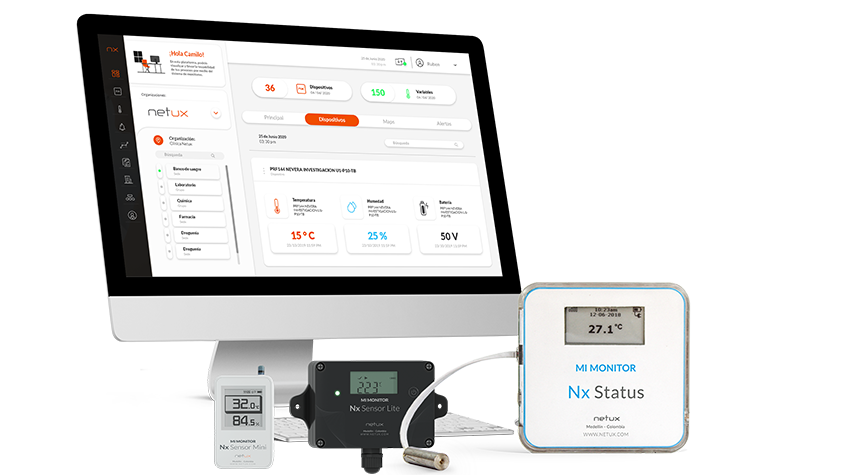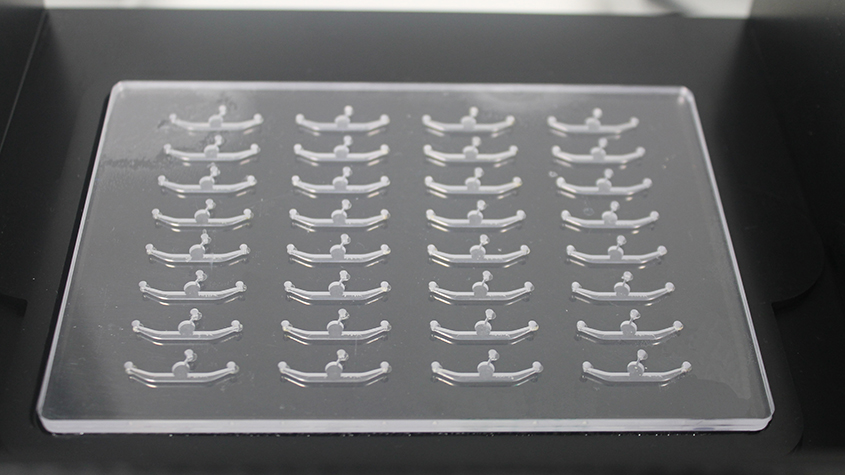مجمع براءات الأدوية يصدر تحليلاً عن الدور الحيوي للترخيص في زيادة الوصول إلى التدابير الطبية المضادة، مركّزاً على البلدان المنخفضة والمتوسطة الدخل
Wed Oct 11 04:01:00 CEST 2023
In a world driven by rapid technological advancements, intellectual property (IP) stands as a cornerstone for protecting and promoting innovation as well as increasing access. The WIPO Global Awards are at the forefront of acknowledging and celebrating these inventive minds. This platform shines a spotlight on exceptional small and medium-sized enterprises (SMEs) from around the world that have leveraged IP to tackle both local and global issues, making significant contributions to the development of their communities, and beyond.
The WIPO Global Awards program and the Global Path of Innovation
The SMEs acknowledged by the WIPO Global Awards demonstrate the transformative potential of IP-driven innovation across multiple sectors, including in the field of public health. As the world grapples with pandemics that transcend borders and impact lives worldwide, inventive thinkers have risen to the occasion, developing innovative technologies and solutions that address emerging public health challenges. These bright minds not only exemplify the spirit of innovation, but also highlight the inseparable link between IP and technological advancement that contribute to the well-being of humanity.
This article will highlight two finalists and one of the winners from the WIPO Global Awards in 2023, now in its second year. The work undertaken by these SMEs includes nanotechnology-based drug delivery for common causes of blindness, enhancing healthcare institutions’ efficiency with Internet of Things (IoT)- driven solutions, and revolutionizing arthritis treatment with personalized chips, demonstrating a commitment to pushing the boundaries of medical possibilities.
By exploring the entrepreneurial journey of these SMEs, we gain insight into how IP, innovation, and public health goals can harmoniously intersect in different regions of the world. Their dedication to innovation and adoption of strategic protection of their IP stands testament to the potential that arises when ingenuity is harnessed for the greater good. This commitment not only drives forward much needed healthcare solutions, but also reinforces the importance of IP in advancing global health.
Let’s see how these businesses developed their commercial product lines, making a lasting impact on global public health through the recognition and support of WIPO.

WIPO Global Award 2023
Inspiring Innovators for Health: Meet Three SMEs that are Making a Difference
Centro de Retina Medica y Quirúrgica (CRMQ), Netux, and Pregenerate, have emerged as examples in the field of public health, each with a unique focus and innovative approach. Leveraging IP assets, they have actively introduced these groundbreaking products into the market, resulting in addressing important global health issues. In the challenging landscape of public health, business expansion plays a crucial role in enhancing treatment accessibility – an achievement deserving of recognition, especially given the stringent regulatory constraints in the healthcare sector.
Centro de Retina Medica y Quirúrgica from Mexico
Blindness and visual impairment are pervasive global health challenges. According to the World Health Organization (WHO), an estimated 2.2 billion people worldwide suffer from vision impairment or blindness, with the majority of cases concentrated in low- and middle-income countries (LMICs). This staggering statistic highlights the urgent need for innovative solutions to address the issue on a global scale. In many instances, the causes of blindness and vision impairment are preventable or treatable, emphasizing the critical importance of accessible and cost-effective healthcare interventions. Preventable blindness is often linked to conditions such as cataracts, glaucoma, and refractive errors, which can be addressed with timely medical intervention, including surgeries and vision correction.
CRMQ’s pioneering nanotechnology platform for drug delivery to the retina is aligned with their mission to address and combat vision-related health challenges. The firm has developed a research model that utilizes a multidisciplinary approach to solve relevant needs in ophthalmology. From the outset of their business journey, their goal has been to provide broad access to medical care, in particular, for the needs of developing countries. Their nanotechnology platform for drug delivery to the retina offers accessible, cost-effective, and non-invasive eye treatments for medical conditions that result in vision impairment, and in certain instances, even blindness.

provide consultation, diagnosis, medical
and surgical treatment of a wide range of
retinal, macula and vitreous conditions
(Image: CRMQ)
CRMQs technology exemplifies the strategic utilization of IP assets to secure a competitive edge in the market. By harnessing patents and trademarks, CRMQ ensures exclusivity and paves the way for future collaborations and global introductions of pioneering pharmacological products, underscoring their commitment to promoting and maintaining healthy vision, worldwide.
CRMQ emerged as one of the winners of the WIPO Global Awards 2023. Their success is rooted in demonstrating successful commercialization of IP and making a positive contribution to society. This recognition “has provided credibility and prestige to our organization” said Enrique Santos, IP manager, at CRMQ, who also noted that they are actively engaged in developing new projects that may secure grants from the local government.
Netux from Colombia
Many healthcare systems struggle with a need for services which are outstripped by available resources. As such, a primary goal within healthcare systems is to strategically allocate limited resources to effectively promote health and deliver quality healthcare services. In the global drive to enhance healthcare systems and promote equitable access to quality services, the strategic adoption of digital technologies emerges as a critical factor.
Netux connects processes, assets, and people to increase efficiency in the operation of healthcare institutions and enhance the experience of their users. They focus on innovating technological solutions for healthcare institutions, with a specific aim of improving cost and operational efficiency for clinics, hospitals, and laboratories. This results in advancing access to medical care for the population and is achieved through technologies such as the IoT, hardware and cloud-based solutions that are applied to the monitoring of assets and processes to ensure maximum efficiency. By facilitating availability of treatment, minimizing economic risks, and optimizing patient care processes, Netux demonstrates its commitment to improve healthcare processes worldwide, allowing them to save more lives.
Ever since its founding, the company has made a deliberate choice to prioritize IP management as a fundamental aspect of its operations. The IP consists of patents, copyrights (software registration) and trade secrets, which allow them to design, manufacture and integrate IoT technologies and develop software to deliver their technological solutions. Trademarks are used to support the commercialization of products, with the objective of achieving differentiation and positioning in the market. IP management has been crucial to help them fulfill their main purpose, which is to contribute to the digital transformation in the health sector.

Pregenerate from Austria
Osteoarthritis is global health challenge that significantly impacts the quality of life for millions of individuals worldwide, according to the WHO. It also happens to be the most common form of arthritis – a debilitating condition, characterized by the progressive degeneration of joint cartilage and the underlying bone. It brings substantial health, economic, and social burdens. With its prevalence on the rise due to factors such as aging populations and lifestyle changes, the imperative to address osteoarthritis on a global scale has become increasingly evident.
In this context, Pregenerate, a leader in personalized arthritis treatment, pursued an innovative approach focused on personalized treatment of osteoarthritis, introducing an "Optimate OA" chip, a game-changer in the field of organ-on-a-chip technology. This cartilage-on-a-chip technology mimics the joint environment and creates arrays of healthy and diseased cartilage-like structures to simulate osteoarthritis development. This technology can help understand how cartilage cells respond to inflammation and to different treatments.
As a result, the platform not only aids in individualized treatment, but also contributes to understanding the disease's diverse pathways and potential therapeutic targets. This approach holds promise for revolutionizing osteoarthritis treatment on a global scale, akin to how molecular diagnostics transformed cancer therapy. Given osteoarthritis' status as a leading cause of disability worldwide, along with its links to life-threatening conditions like heart disease, diabetes, and depression, their solution has the potential to significantly enhance quality of life and productivity, and to help alleviate some of the socioeconomic burden associated with degenerative diseases, which currently amounts to hundreds of billions of dollars annually.
With the European Conformity (CE) marking and exclusive commercialization rights for their global patent family, Pregenerate has positioned itself to capitalize on this breakthrough. Furthermore, they have registered trademarks in EU and USA as well as submitted two new patent applications in mid-2023. Prioritizing IP monitoring, they minimize patent infringement risks, ensuring the continued advancement and commercialization of their innovative products and services, ultimately paving the way for more personalized and effective arthritis treatment approaches. Pregenerate aims to leverage their medical technology to help doctors identify which available osteoarthritis treatment is appropriate for each individual patient. They believe their device can help pharmaceutical companies develop therapeutics faster and without animal testing.
The opportunity to be one of the top 25 finalists of the WIPO Awards has assisted the company to “successfully pitch for subsidy funding (contract pending)”. Specifically, “this nomination helped to solidify our commercial viability as an early stage medtech startup, which is critical for future strategic partnerships and securing capital for upcoming clinical trial and launch”, said Julie Rosser and Faheem Ali, founders of Pregenerate.

These three SMEs are not only addressing critical public health issues but also showcasing the transformative power of innovation coupled with strategic intellectual property management. Their contributions highlight the vital role of SMEs in shaping the future of healthcare, fostering collaboration, and driving positive change on a global scale. Through their groundbreaking products and commitment to IP protection, Netux, Pregenerate, and CRMQ are emblematic of the spirit of commercial innovation and creativity that the WIPO Global Awards seek to recognize and celebrate.